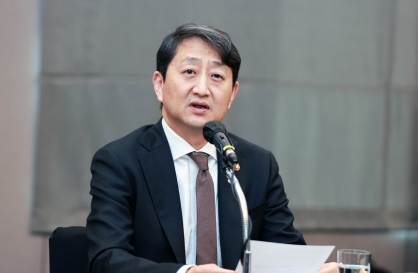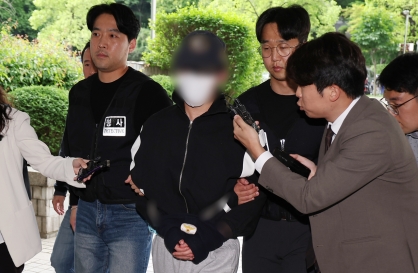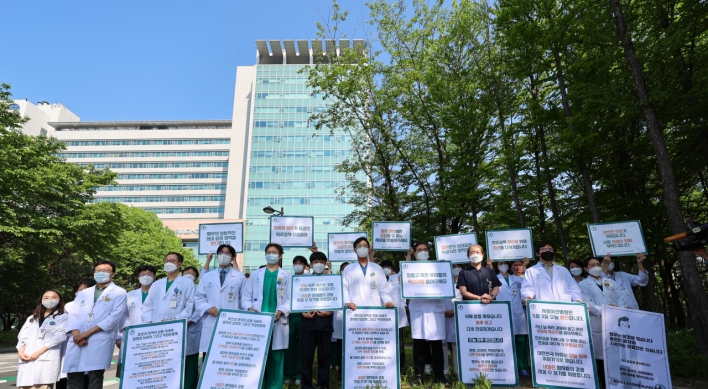Intelligent Koreans find it increasingly difficult to tell the whole truth from half-truths and outright lies these days. “Facts” about people are disseminated through the media and the social networking service channels, but their respective audiences should exercise great discretion to decide whether the information is true or not.
Most dangerous are half-truths which make people believe the whole information is true when it is partly false. This can be compared to a recently circulated nude picture attributed to a popular singer, which in fact was a photo shop combination of her face and the naked body of an unknown woman. Like this idol star, many victims of false allegations experience great troubles in trying to deny falsehood and establish the truth.
Another case in point was the allegation about the radioactive pavement in Wolgye-dong in northeastern Seoul. After a resident detected minimal amount of cesium 137 in the asphalt pavement, Seoul City removed the blacktop in the area. The central government conducted radioactivity tests on the entire 5,500 sections across the country which had asphalt work since 2001 to find only one place releasing 0.5 microsievert of cesium, which is below the harmful level.
However, a host in the popular “Naneun Kkomsuda (I am a trickster)” program said in the midst of the radioactivity controversy that the Wolgye-dong pavement radioactivity was “of the same level as Chernobyl.” He attributed the information to an unnamed environmental advocate group. This man, ex-lawmaker Chung Bong-joo, is serving the second month of a one-year sentence given him for a libel conviction in connection with his allegations in 2007 about then presidential candidate Lee Myung-bak’s involvement in a stock manipulation case.
The nuclear power plant explosion in the Ukraine in 1986 left about 40 people dead immediately at the scene and caused subsequent cancer deaths of over 30,000 nearby residents. In Wolgye-dong, no radioactivity-related health hazards to residents have been reported yet.
The media, both in the mainstream and those using the Internet and other new technologies, should share responsibilities for the spreading of information of dubious nature. Straight and correct attribution is not in the tradition of Korean journalism. In the nation’s dailies, many important news items follow the “it-was-learned” format and reporters of major broadcasting networks repeat saying, “We have been informed …” These media workers may still not be aware that such a gimmick does not free them from the consequences of passing half-truths or non-truths.
This is an election year when libelous information often floods out from campaigners. The name Kim Dae-eop is remembered for his contribution to the defeat of Lee Hoi-chang in the 2002 presidential election with his claim of improprieties in the draft evasion of Lee’s son. Last year in the by-election of Seoul mayor, a news magazine report on Grand National Party candidate Na Kyung-won’s alleged 100 million won membership at a skincare clinic is believed to have cost her many votes. Police later announced she spent 5.5 million won there for the treatment of her daughter suffering from Down syndrome.
Two bills of sharply contrasting nature have been submitted to the National Assembly, one dubbed the Chung Bong-joo bill and the other the Na Kyung-won bill. The proponents of the former emphasize freedom of expression and want to provide stricter conditions for the punishment of candidates and their campaigners making false libelous allegations. The latter prescribes jail terms instead of fines for defamation during election campaigns, aiming to prevent liberal dissemination of falsity without risk of serious consequences.
The “CBJ” bill requires the prosecution to prove that the accused knew that his or her allegation was untrue and had the clear purpose of making a specific contender fail in the election. The crusaders of free expression put a clause that prohibits punishment when an act was “related to a matter of public and social interests and made for the purpose of contributing to the creation of public opinion and promotion of open debate.” This means one can freely say anything disadvantageous to a rival at a public occasion asserting that he believed it is true.
Members of the main opposition DUP already act and speak like they were assured of being the next holders of power, but they do not seem to realize that the removal of legal binds on improper political propaganda ― either on a partisan or individual level ― will boomerang on themselves.
Beyond party boundaries, politicians are the strongest believers in the usefulness of half-truths in their race toward power. Unscrupulous media are their accomplices.
Most dangerous are half-truths which make people believe the whole information is true when it is partly false. This can be compared to a recently circulated nude picture attributed to a popular singer, which in fact was a photo shop combination of her face and the naked body of an unknown woman. Like this idol star, many victims of false allegations experience great troubles in trying to deny falsehood and establish the truth.
Another case in point was the allegation about the radioactive pavement in Wolgye-dong in northeastern Seoul. After a resident detected minimal amount of cesium 137 in the asphalt pavement, Seoul City removed the blacktop in the area. The central government conducted radioactivity tests on the entire 5,500 sections across the country which had asphalt work since 2001 to find only one place releasing 0.5 microsievert of cesium, which is below the harmful level.
However, a host in the popular “Naneun Kkomsuda (I am a trickster)” program said in the midst of the radioactivity controversy that the Wolgye-dong pavement radioactivity was “of the same level as Chernobyl.” He attributed the information to an unnamed environmental advocate group. This man, ex-lawmaker Chung Bong-joo, is serving the second month of a one-year sentence given him for a libel conviction in connection with his allegations in 2007 about then presidential candidate Lee Myung-bak’s involvement in a stock manipulation case.
The nuclear power plant explosion in the Ukraine in 1986 left about 40 people dead immediately at the scene and caused subsequent cancer deaths of over 30,000 nearby residents. In Wolgye-dong, no radioactivity-related health hazards to residents have been reported yet.
The media, both in the mainstream and those using the Internet and other new technologies, should share responsibilities for the spreading of information of dubious nature. Straight and correct attribution is not in the tradition of Korean journalism. In the nation’s dailies, many important news items follow the “it-was-learned” format and reporters of major broadcasting networks repeat saying, “We have been informed …” These media workers may still not be aware that such a gimmick does not free them from the consequences of passing half-truths or non-truths.
This is an election year when libelous information often floods out from campaigners. The name Kim Dae-eop is remembered for his contribution to the defeat of Lee Hoi-chang in the 2002 presidential election with his claim of improprieties in the draft evasion of Lee’s son. Last year in the by-election of Seoul mayor, a news magazine report on Grand National Party candidate Na Kyung-won’s alleged 100 million won membership at a skincare clinic is believed to have cost her many votes. Police later announced she spent 5.5 million won there for the treatment of her daughter suffering from Down syndrome.
Two bills of sharply contrasting nature have been submitted to the National Assembly, one dubbed the Chung Bong-joo bill and the other the Na Kyung-won bill. The proponents of the former emphasize freedom of expression and want to provide stricter conditions for the punishment of candidates and their campaigners making false libelous allegations. The latter prescribes jail terms instead of fines for defamation during election campaigns, aiming to prevent liberal dissemination of falsity without risk of serious consequences.
The “CBJ” bill requires the prosecution to prove that the accused knew that his or her allegation was untrue and had the clear purpose of making a specific contender fail in the election. The crusaders of free expression put a clause that prohibits punishment when an act was “related to a matter of public and social interests and made for the purpose of contributing to the creation of public opinion and promotion of open debate.” This means one can freely say anything disadvantageous to a rival at a public occasion asserting that he believed it is true.
Members of the main opposition DUP already act and speak like they were assured of being the next holders of power, but they do not seem to realize that the removal of legal binds on improper political propaganda ― either on a partisan or individual level ― will boomerang on themselves.
Beyond party boundaries, politicians are the strongest believers in the usefulness of half-truths in their race toward power. Unscrupulous media are their accomplices.









![[K-pop’s dilemma] Time, profit pressures work against originality](http://res.heraldm.com/phpwas/restmb_idxmake.php?idx=644&simg=/content/image/2024/05/08/20240508050705_0.jpg&u=20240508171126)

![[K-pop’s dilemma] Can K-pop break free from ‘fandom’ model?](http://res.heraldm.com/phpwas/restmb_idxmake.php?idx=644&simg=/content/image/2024/05/09/20240509050541_0.jpg&u=20240509173751)






